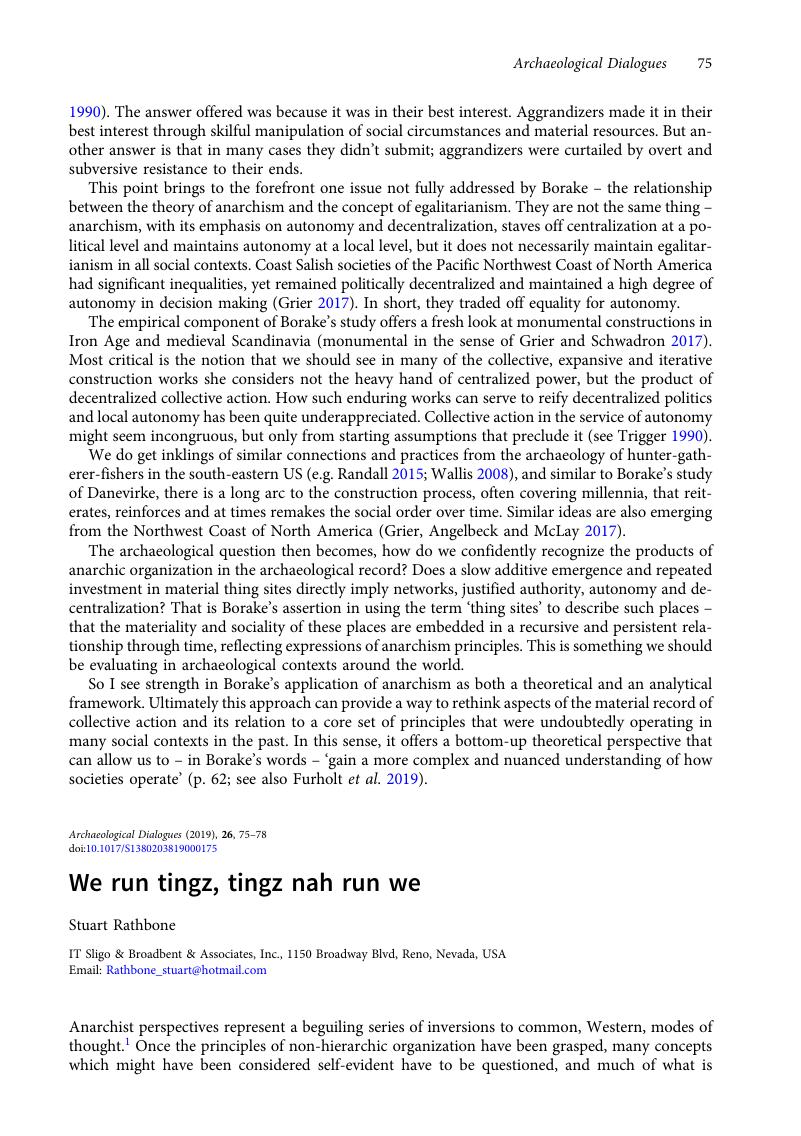Article contents
We run tingz, tingz nah run we
Published online by Cambridge University Press: 12 December 2019
Abstract

- Type
- Discussion
- Information
- Copyright
- © Cambridge University Press 2019
References
Notes
1 The title of this piece is a Jamaican proverb.
2 Clastres did not resolve how authoritarian rule in neighbouring communities could have originated beyond invoking influence from a further external group, and so on, leaving a ‘chicken-and-egg’-style ‘mystery’ of the origin of political authority for future researchers to grapple with (Clastres 1989, 205). Barclay (1990, 136) identified the ‘big-man’ style of leadership as being most vulnerable to internal authoritarian takeover.
3 There is serious doubt whether there ever was a historical Robin Hood, and even if we were to accept that the medieval stories did derive from an actual person, their actions and motivations are entirely obscured by time (Knight 2006; Baldwin 2010).
- 2
- Cited by




